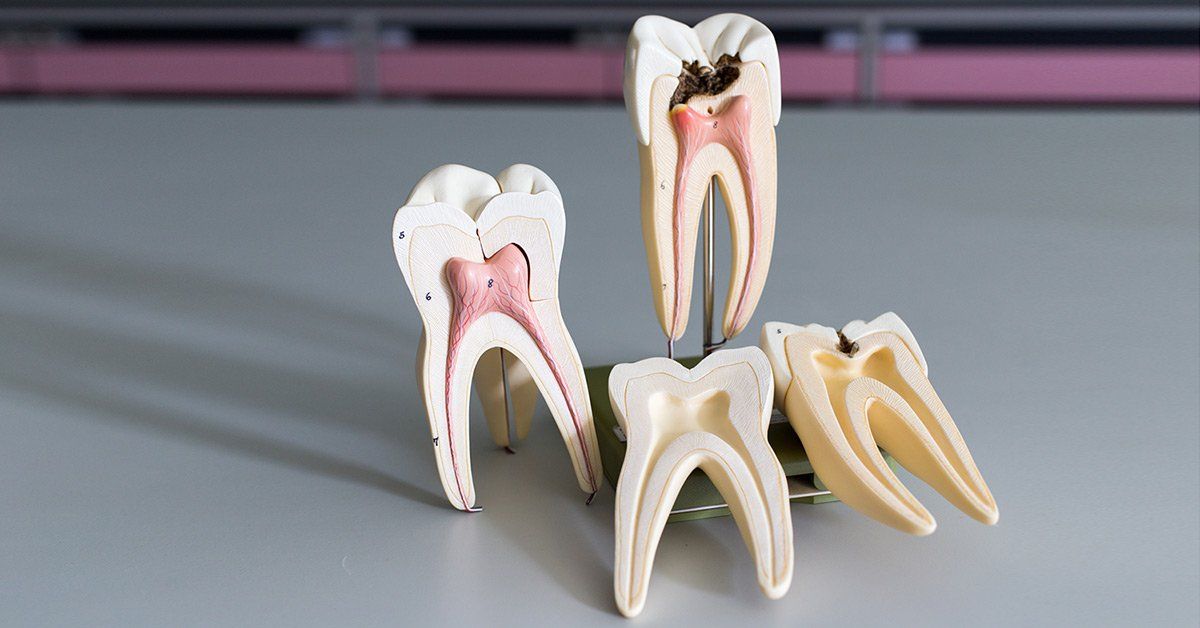Tooth Needs Root Canal Pain Relief | Root Canal Tooth Pain Relief
Oh, no! Did you find out you need a root canal? Well, don't worry. Root canals are routine procedures and we'll tell you just what to expect from the procedure.
At least 31% of American adults aged 20-44 had untreated tooth decay between 2013 and 2016.
Left untreated, tooth decay can cause severe pain, tooth infection, and even losing your tooth. And while rumors of root canal pain abound, this procedure is actually intended for pain relief.
If you're suffering root canal symptoms and you're not looking forward to visiting the dentist, knowing what to expect might ease your worries. We'll tell you what a root canal is, how it's performed, and all about recovery. Keep reading to get to the root of these questions and more.
What Is a Root Canal?
In the center of the tooth lives the nerve, blood vessels, and the connective tissue. Together, these make up the dental pulp.
A root canal (aka an endodontic treatment) is a serious dental procedure that involves treating infected, inflamed, or dead dental pulp. This may be caused by injury to the tooth, deep cavities, issues from previous dental treatment, and genetics.
Contrary to what you might have heard, a root canal is a quick, relatively painless procedure. It can relieve the pain caused by damaged dental pulp, save your teeth, and restore efficient chewing. Without treatment, the infection can spread and cause further dental complications and pain.
What Does a Root Canal Procedure Look Like?
Underneath the enamel and dentin that make up the outside, hard layers of the tooth, is the soft tissue known as pulp. The pulp is an important component of tooth development.
But when that soft tissue is damaged, it begins to break down. As it weakens, bacteria can multiply inside the tooth and lead to infection.
Today, root canal therapy is a serious but routine dental procedure wherein damaged, inflamed, or infected pulp is removed from the inside of the tooth.
The tooth is then cleaned and disinfected, filled, and sealed in order to prevent future infection. Once sealed, bacteria shouldn't be able to enter the tooth again.
After a root canal and crown , your tooth is restored to normal shape and size. It will also function the same, if not better, than it did prior to your root canal procedure.
Root Canal Pain
Root canal treatments have a bad reputation for being painful. But having a root canal is no more painful or invasive than a regular temporary filling.
Patients are given local anesthetic prior to receiving any treatment. You shouldn't feel anything more than a dull pressure during root canal therapy.
With that said, the hours and days following a root canal may bring some discomfort. The area may feel sore or numb, but this shouldn't last for more than a few days. The pain and swelling can be controlled with over-the-counter, pain-relieving medications.
The truth is that root canal pain, especially if left untreated, is far worse than the root canal and crown itself. Untreated damage, decay, or infection in your root canal can lead to an abscess.
An abscess is a result of infection spreading past the root of your tooth. It causes a pocket at the end of the root that fills with pus. These can be extremely painful and even dangerous.
Root Canal Symptoms
If you have a root canal, recognizing the symptoms early will allow you to seek treatment early - before it gets any worse.
Below are some root canal symptoms to look out for:
- Pain and Sensitivity, especially to hot and cold
- Severe pain, especially while chewing
- Chips or cracks in the teeth
- Swelling gums
- Tender gums
- Darkening or decaying gums
- Pimples on the gums
- Damaged tooth
While most people will have root canal symptoms that make a visit to their dentist imperative, some people won't have any warning signs. Regularly visiting your dentist is the only way to
ensure optimal dental health .
Recovering From a Root Canal and Crown
Root canal therapy takes either one or two procedures. How many procedures you'll require depends on your dental hygiene , the state of your tooth, and your dentist's discretion.
If you require more than one procedure, minimize chewing until the root canal therapy is complete. Chewing on these teeth without a crown can cause reinfection or breakage of the tooth.
After treatment, patients typically experience numbness for 2-4 hours. The gums and teeth may be inflamed, causing temporary sensitivity that is easily relieved with over-the-counter pain medications.
In most cases, patients can return to work, school, and other daily activities after the procedure.
Endodontic Treatment Can Save Your Tooth
A root canal and crown is performed by either a general dentist or an american association of endodontists. The latter is a kind of specialist in the dental pulp and the nerve of the tooth.
Your dentist can recommend who should perform your procedure based on their own qualifications, as well as the difficulty of the procedure. While most dental insurance covers endodontic treatment, check your own policy to make sure you're covered.
Endodontic surgery may also be required if reinfection occurs. In some cases, another root canal therapy will fix reinfection. In others, apicoectomy or root-end section surgical procedures are needed for oral health.
If you're experiencing root canal symptoms, seeking treatment is important. Further infection can lead to an abscess, and that can lead to extraction. An extracted tooth has to be replaced with an implant or a bridge, which is more expensive and means losing your natural tooth.
Don't Ignore Root Canal Pain
If you're experiencing any type of tooth sensitivity, you shouldn't ignore it. Root canal pain includes sensitivity to hot and cold, pain while chewing, while you brush and floss, and as well as swollen and tender gums. Ignoring those root canal symptoms can lead to more serious dental complications, that are often more costly to fix.
Whether you think you've got a root canal or it's time for your regular visit,
contact us to make your appointment.




